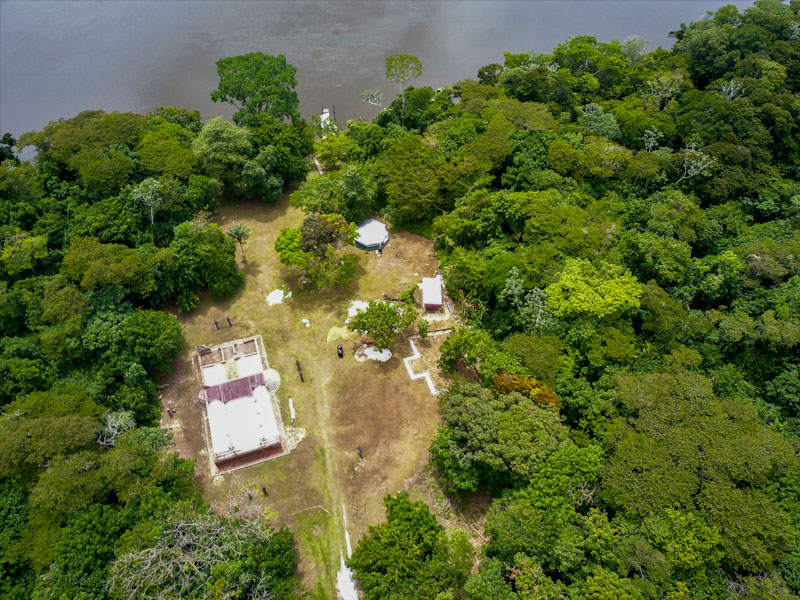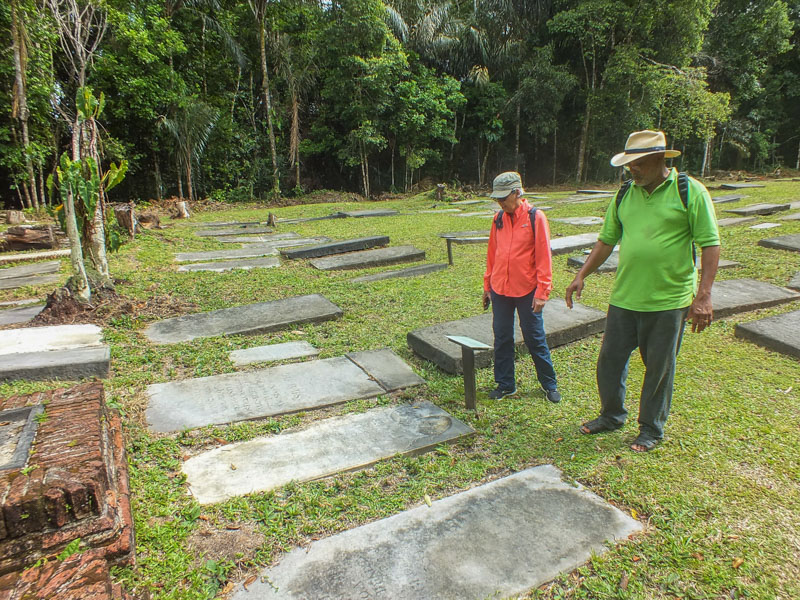Suriname - Nomination Jodensavanne World Heritage List
Jodensavanne Archaeological Site in Suriname is formally one of the twenty heritage nominations for placement on the World Heritage List in 2023. In July 2023, UNESCO's World Heritage Committee will meet to decide whether the site will definitely be given a place on this prestigious list.
History
The Jodensavanne is located in a rural area in the middle of indigenous territory. The Jewish community of Jodensavanne functioned for about 150 years, from the 1680s to the first half of the nineteenth century. In the early modern era, Suriname was home to the largest Jewish communitiy in America, with 1,500 inhabitants at its peak at the end of the eighteenth century. At that time it concerned a quarter of the Jewish population in the whole of America and up to two-thirds of the white population of the former colony of Suriname.
The Jodensavanne, as presented on the provisional UNESCO World Heritage List of 1998, actually consists of two historically connected sites, namely the Cassipora Kreek cemetery and the settlement Jodensavanne. Although physically separated, both the Cassipora Kreek Cemetery and the Jodensavanne settlement are historically strongly intertwined, as the Cassipora Cemetery is a remnant of an older Jewish settlement whose members gradually integrated into the community of Jodensavanne. Together, the two sites are an exceptional testimony to a Jewish civilization in the Atlantic Sephardic diaspora.
 Overview Jodensavanne with the synagogue (photo Stephen Fokké)
Overview Jodensavanne with the synagogue (photo Stephen Fokké)
Both the Cassipora Kreek and the Jodensavanne villages are unparalleled in the Jewish diaspora. These sites, founded in the 1650s and 1680s respectively, were at the time the only settlements in the world that granted territorial and communal autonomy and which existed in a slave society and a frontier zone amidst Indigenous (Amerindian) territory, during the seventeenth through the first half of the nineteenth century. A context in which different cultures and ethnic groups came into contact, collided and connected with each other resulting in tangible and intangible interchanges. These two Jewish settlements harbor one of America’s oldest surviving Jewish cemeteries, as well as the foundations of houses, community buildings and a synagogue.
The village of Jodensavanne is also the site of an African-Creole cemetery, whose deceased were born both during and immediately after slavery, which was abolished in 1863.
From nomination to designation
At the end of November 2022, the nomination was discussed by the ICOMOS World Heritage Panel and a delegation from the Jodensavanne foundation, Harold Sijbling and Stephen Fokké. The discussed questions will still be formally sent, after which they must be adequately answered by the end of February at the latest. In March 2023, ICOMOS will formally finalise their report with a recommendation to the World Heritage Committee. A few months later, the World Heritage Committee will decide on the application.
 Harold Sijbling of the Jodensavanne Foundation gives ICOMOS expert Maria Eugenia Bacci an explanation at a grave monument at the Jewish cemetery of the Jodensavanne (photo Stephen Fokké)
Harold Sijbling of the Jodensavanne Foundation gives ICOMOS expert Maria Eugenia Bacci an explanation at a grave monument at the Jewish cemetery of the Jodensavanne (photo Stephen Fokké)
Meanwhile, the Embassy of Suriname in Paris, where UNESCO has its seat, and the Jodensavanne foundation are busy lobbying to convert the nomination into a final designation. Fokké: "The Jodensavanne undoubtedly has the required so-called exceptional universal value for all humanity (OUV – Outstanding Universal Value). We have full confidence in it, because there is simply no second Jewish savannah in the world!"
Designation also means that the state of Suriname becomes formally responsible for the management and preservation of the site and must maintain it on the basis of national and international legislation. It would also become the third world heritage site of Suriname. Previously, the Central Suriname Nature Reserve and the historic city center of Paramaribo received international recognition as natural and cultural world heritage respectively.
- Last updated on .


